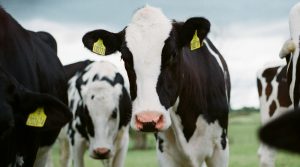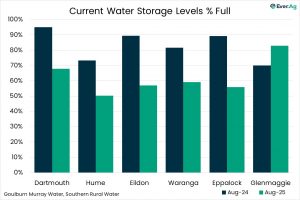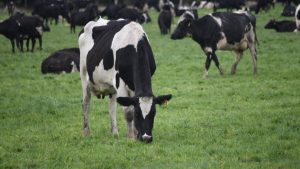
UK-based Agronomics, a VC that focuses on opportunities within cellular agriculture, contributed $15 million and $10 million through an affiliate investment vehicle called New Agrarian Company.
All G Foods founder Jan Pacas tells SmartCompany the lion’s share of this funding will go to the cellular milk side of the business.
“It’s a much more complex project,” he said. “It hasn’t been done before yet in the world, so that’s why we’re doubling down on this one.”
All G Foods hopes to be the first in the Asia-Pacific region to launch, and Pacas says the funding will go a long way to addressing the many challenges faced by companies innovating in the fast-growing industry.
“We’ve got to overcome regulatory challenges, we’ve got to overcome scale-up challenges. We’ve got the science, we can make it in the lab, but we still have to make it cheaper.”
Agronomics has backed a number of advanced companies and has experience in the field, so Pacas says All G Foods feels “privileged” to work with the company.
“They really understand the future of proteins as well as cellular agriculture,” said Pacas.
As part of the deal, All G Foods will have access to Agronomics’ fermentation tanks and bioreactors to ramp up production, with the hope of one day installing facilities in Australia.
The “bottlenecks” alternative protein industries face have a lot to do with how new and unfamiliar the products are, Pacas says.
“While it is molecularly identical [to cow’s milk], the way we make it different, and that’s what the regulator has to become familiar with.”
He was quick to point out that the technology is already approved in the US and Singapore, with Singapore to be an early test market for All G Foods’ dairy product.
“China is not the first import market [for us] because it’s too important and too big,” said Pacas. Australia, Indonesia, Japan and others will follow Singapore.
Another hurdle is consumer acceptance for an unfamiliar product, though Pacas was confident they’d accept cellular milk thanks to its taste, nutrional value and low environmental impact.
“If I can give you A2 milk, which has no lactose, no allergens and no antibiotics, yet has A2 proteins, and is made in an entirely sustainable way, where it doesn’t harm animals and it doesn’t need excessive land water or sun to grow, it’s a total game changer.”
“We take the genetic information of the molecule, we put it in a yeast or in a bacillus, we program that, and then those become mini small cell factories that create at scale. It is basically replicating the same manufacturing process that is happening in a cow’s udder — where you have the genetic information of a cow’s udder and you grow the milk in a cow’s udder — but we grow it in a bioreactor.”
In February, All G Foods announced a multimillion-dollar injection from W23, Woolworths Group’s venture capital and growth fund, during an investment boom in meat alternatives.
























